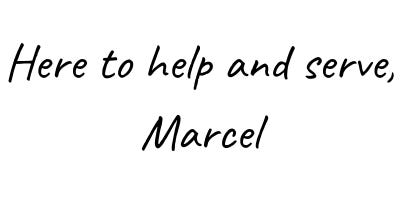CEOs: How to Build a Burnout-Proof Business for Your Leaders and Managers to Thrive
Five strategies to prevent leader burnout before it derails your business or workplace.
The world of leadership needs a humane shift.
Away from fear-based control and towards an approach that values emotional intelligence, growth, purpose, and service to all stakeholders.
In Humane Leadership, you’ll learn how to create an environment where:
Your team feels empowered, respected, and supported to do their best work.
You lead with authenticity and confidence, inspire radical and practical love, and drive exceptional performance.
Are you looking to revolutionize your leadership style and create a workplace culture that attracts top talent, fosters lasting loyalty, and achieves outstanding business success for your organization?
Leadership burnout is a growing crisis, affecting individual well-being and causing serious organizational consequences—like lower engagement, weaker performance, and higher turnover.
But burnout is preventable.
A global study by DDI, involving over 10,000 leaders, identifies five evidence-based strategies that help leaders stay energized and resilient, especially in high-stress industries like health care, education, and tech—but they apply to all sectors.
The key takeaway from this research is that burnout won’t fix itself. Leaders need proactive, organizational support to prevent it. Here are five burnout-prevention strategies for CEOs to consider:
1. Develop delegation skills.
Among all leadership capabilities, delegation emerges as the single most powerful skill for preventing burnout.
Surprisingly, it’s five times more impactful than any other leadership behavior, accounting for a staggering 80 percent of burnout prevention effectiveness. And yet a mere 19 percent of more than 70,000 manager candidates assessed by DDI show strength in this area.
Here’s my take: Delegation isn’t just about lightening your load—it’s about turning leadership into a team effort. When you delegate well, you're not only saving your own energy but also giving your team a chance to grow and develop.
This helps create a positive vibe where everyone feels more engaged and productive. It’s all about building trust, empowering others, and making sure your team thrives together.
Building this leadership muscle also multiplies a leader’s impact. Leaders can focus on strategic priorities by trusting their team with meaningful responsibilities instead of drowning in the day-to-day.
2. Learn to manage conflict.
The second most effective buffer against burnout? Conflict resolution. It accounts for 15 percent of the overall impact of preventing burnout. Still, fewer than half (46 percent) of leaders feel confident handling conflict productively.
Here’s my take: Unresolved conflicts can really take a toll on a leader’s energy and create unnecessary tension. When issues aren’t addressed early, it’s easy for leaders to end up carrying the emotional weight on their own. This not only impacts their well-being but also affects work quality, causes deadlines to slip, and can erode trust within the team. Left unchecked, it’s a downward spiral that only adds to the stress over time. The key is tackling problems head-on before they get out of hand.
Conflict’s a given—but burnout doesn’t have to be. That’s why it’s so important to help leaders at every level of the hierarchy to lean into tough conversations, defuse tension, and coach their teams through disagreements.
Bonus: Upgrade your subscription to receive your guide: How to Coach for Accountability: A Proven 5-Step Playbook for Leaders
3. Build trust as the foundation.
Trust isn’t just a “nice to have”—it’s how we survive in leadership. If you’re a manager and don’t trust the senior leaders above you, you’re over four times more likely to burn out, according to DDI. That makes trust-building not just important but essential.
What builds trust? Things like communicating regularly (and honestly), doing what you say you’ll do, leading with authenticity, and giving people the freedom to own their work. Those simple habits go a long way.
Here’s my take: Trust is key to preventing burnout. When leaders build real trust within their teams, they create a space where people can be open and vulnerable, make tough decisions confidently, and show up as their best selves. This is crucial for keeping the energy and resilience high, which helps everyone thrive in leadership roles—without burning out.
When trust is strong, leaders and managers will feel supported, not isolated. And that makes a significant impact.
4. Give leaders the tools and support they need.
Let’s be real—when leaders below the C-Suite don’t have the tools, support, or clarity they need, they’re twice as likely to worry about burning out, according to the DDI research. It’s hard to lead well when you’re short on staff, stuck with clunky systems, or unclear on what really matters.
My take for CEOs: Supporting your leaders isn’t just about fixing logistics or holding their feet to the fire about reaching financial metrics. It’s about showing that you actually care about their success and ensuring they have what they need to equip their workforce. When leaders feel supported by their execs, they thrive.
5. Cultivate a well-being-focused culture.
Leaders in companies using these burnout-busting strategies are 37.5 times more likely to stay engaged. Yep, you read that right—this isn’t a small boost, it’s a game-changer.
But real engagement doesn’t just magically show up. It takes a culture built on purpose. That means making sure workloads match what people can actually handle, encouraging real work-life boundaries, and having senior leaders walk the talk when it comes to healthy habits. Just as important is celebrating consistent, sustainable performance—not just those last-minute heroics.
When leaders see well-being treated as a real priority—not just a checkbox—they feel more confident taking care of themselves and their people.
Because here’s the truth: Managing stress isn’t selfish. It’s what strong leadership looks like.
Let’s be clear: Preventing burnout isn’t about teaching your leaders and managers to be tougher, having more “grit,” or being more resilient. It’s about reimagining the systems around them that no longer serve them well and drag them down. Bureaucracy, micromanagement, a “win at all costs” hustle culture, and anything else that dehumanizes people and sends them packing for the competition.
When organizations embrace these strategies, the results speak volumes. According to the research, leaders are:
2.6 times less likely to experience burnout
18.5 times more likely to enjoy leading
11.8 times more likely to stay with their current employer
The bottom line? Burnout is preventable. But only if we stop treating it like a personal weakness and start treating its prevention like the organizational priority it truly is.
Bonus for CEOs: Upgrade your subscription to receive my coaching playbook, “Driving Results Without Burning Out Your People (and How To Do It).”
PS. What did you think of today’s newsletter? Let me know what you liked, didn’t like, or what I could improve.
If you’re joining me for the first time - welcome!
You’ve arrived at a place dedicated to helping you grow as a leader. To get started, click the red button below, and I’ll do everything I can to provide you with insights, tools, and pathways to help you lead with greater clarity, impact, and care.
Whenever you’re ready, here’s how I can help:
Humane Leadership: Ready to make the shift to humane leadership? Humane Leadership shows you how to create an environment where your team feels empowered, respected, and supported, while you lead with authenticity and confidence, attract top talent, foster lasting loyalty, and achieve outstanding business success.
Answer Your Leadership Questions: Do you need immediate guidance on a specific leadership issue? As a Substack Founding Member, you'll receive a 45-minute coaching session designed to provide practical solutions and clarity now.
Unlock Your Leadership Potential: Most coaching focuses on what leaders do - but real change starts with who you are. My coaching helps you (or your managers) build deep self-awareness, expand influence, and create meaningful, lasting impact with the people you lead. Schedule a 30-Minute Discovery call to learn more.








